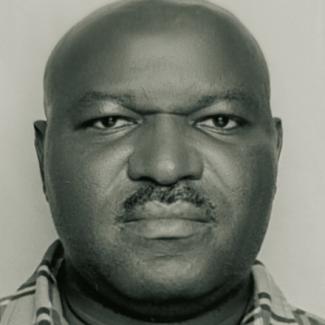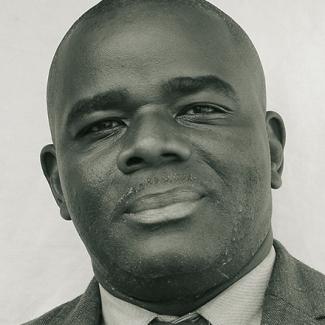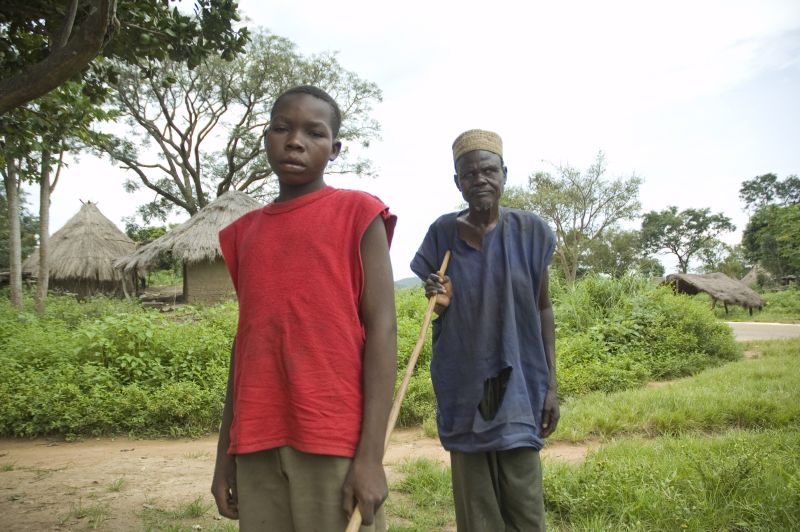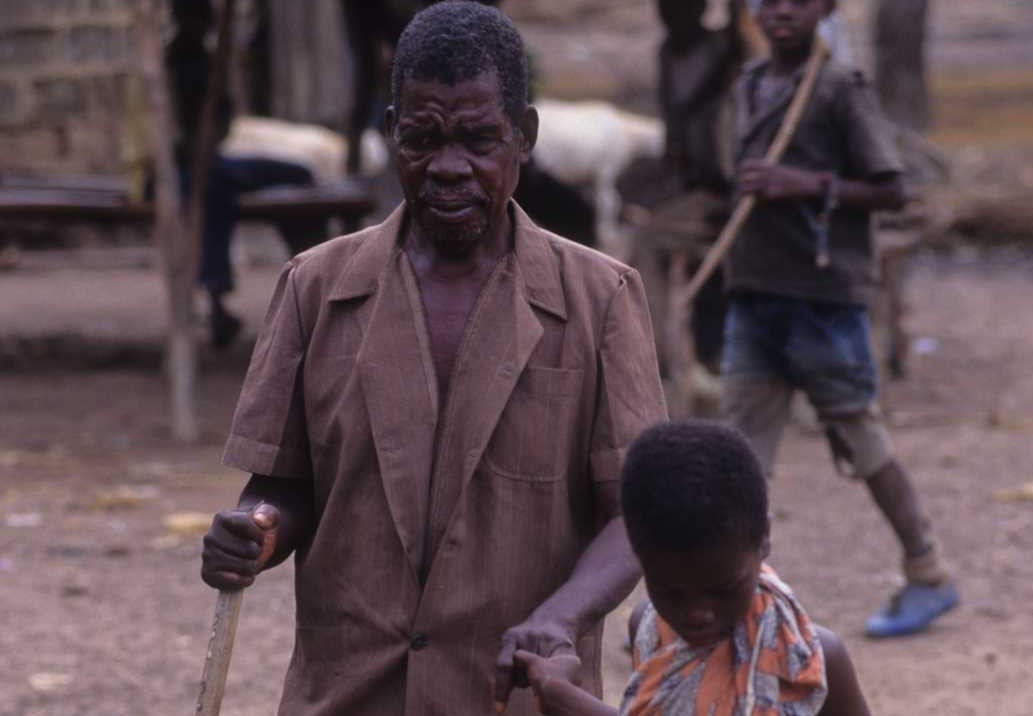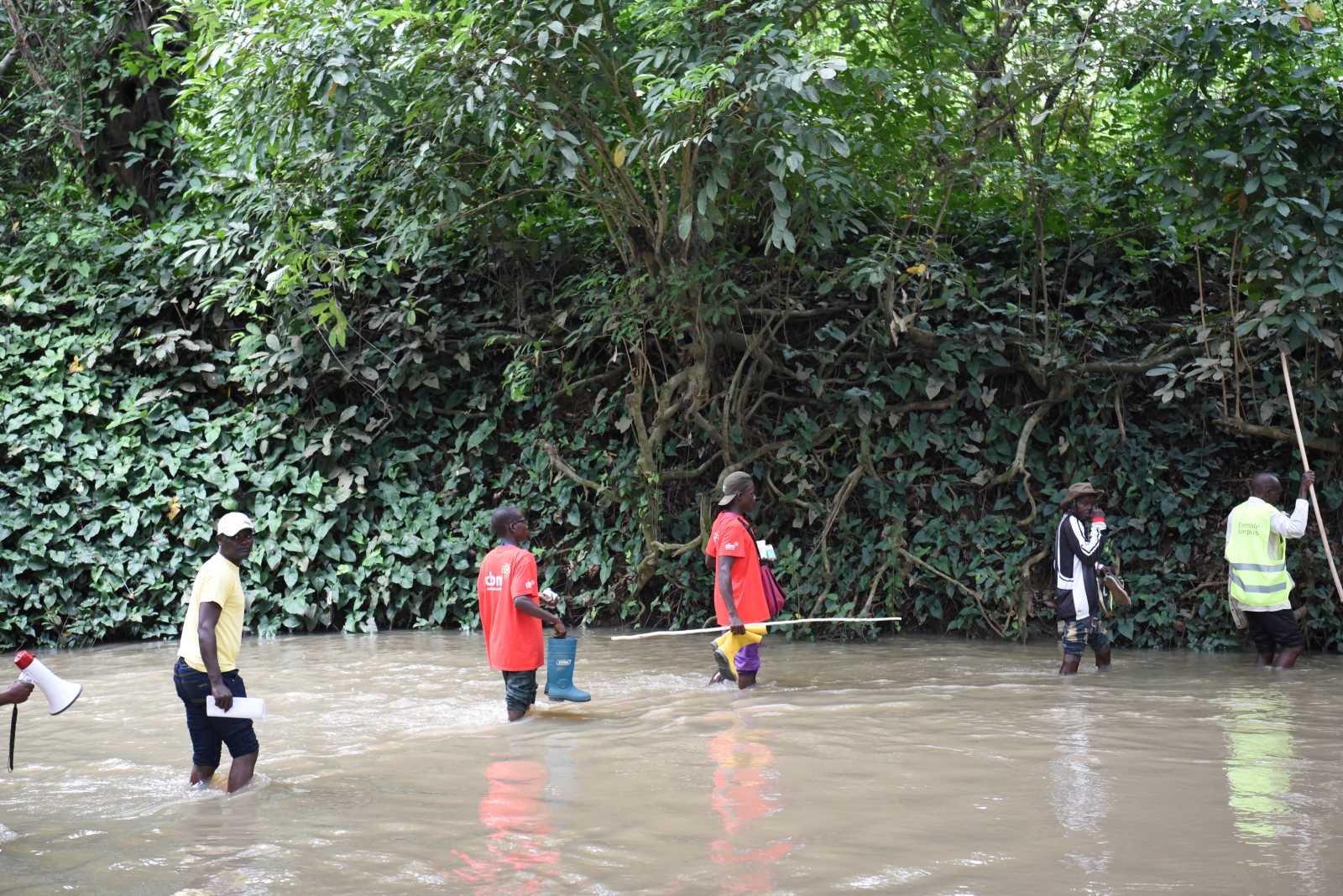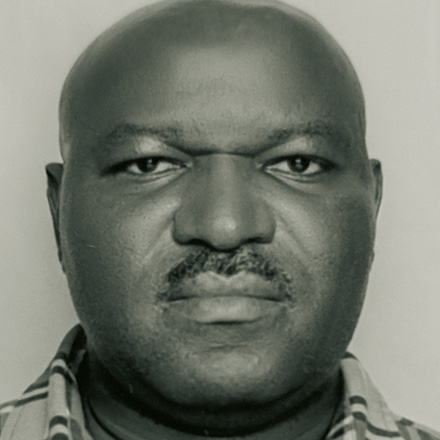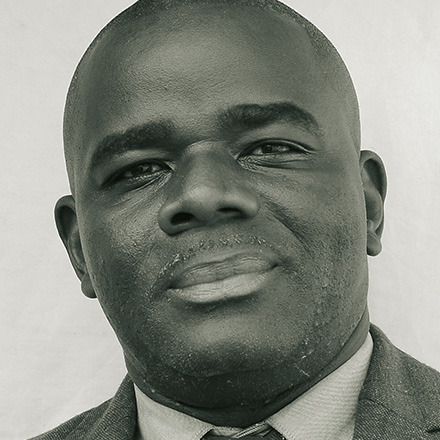River blindness
Drug distribution is not enough in the fight against river blindness
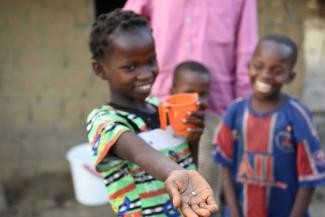
Kangawode is 75 years old and has lived most of his life in Tagwa in the northwest of the Democratic Republic of the Congo (DRC). His house is just 50 meters from the Ubangi River, which marks the border with the Central African Republic. Kangawode has been blind for many years due to river blindness. His two eldest sons – aged 40 and 45 – are also blind as a result of the disease. While Kangawode’s other three sons were spared this fate, they suffered from other symptoms of onchocerciasis, as the disease is formally known – severe itching and the characteristic “lizard skin”.
Despite several years of annual treatment with ivermectin to control the parasites, there is evidence that transmission continues in Tagwa and that additional preventive measures are needed to eliminate the disease. Numerous people have been found to have nodules under their skin, indicating the presence of breeding adult worms that release millions of microfilariae into the bloodstream.
Equally worrying was the finding that almost three percent of those surveyed in the village suffered from epilepsy, which is often associated with onchocerciasis. This includes two of Kangawode’s grandchildren.
Many families affected
There are many families like Kangawode’s in the DRC and many obstacles to be overcome in the fight against river blindness. In 2022, a study in the province of Kasai in the south of the DRC showed that it is not enough to simply distribute medication to the population: preventive chemotherapy with ivermectin did not appear to be as effective as expected. Further investigations showed that half of the residents were excluded from treatment due to local conflicts.
The Christian Blind Mission (CBM) subsequently provided additional funding in 2023 to support communication and sensitisation of the population during the mass distribution campaign. The aim of this initiative was to strengthen the population’s commitment and improve the treatment rate and thus the impact for the whole village. A follow-up visit in January 2024 showed encouraging signs of progress.
CBM has been a committed partner in supporting the Neglected Tropical Diseases (NTD) programme in the DRC since 1989, initially through the African Programme for Onchocerciasis Control (APOC) and more recently through direct support to the national NTD programme in various regions.
CBM remains committed to strengthening the onchocerciasis programme in the country, focusing on expanding access to treatment to prevent conditions such as skin lesions, blindness and epilepsy. The inclusion of epilepsy prevalence studies in onchocerciasis-endemic areas and the ongoing improvement of therapeutic coverage surveys are critical steps in this effort.
Enan Adamani is NTD project leader for the Accelerating Onchocerciasis and Lymphatic Filariasis Elimination in Nigeria (AOLFEIN) project at CBM.
enan.adamani@cbm.org
Michel Mandro-Ndahura is CBM’s NTD Programme Manager for West Africa.
michel.mandro-ndahura@cbm.org
